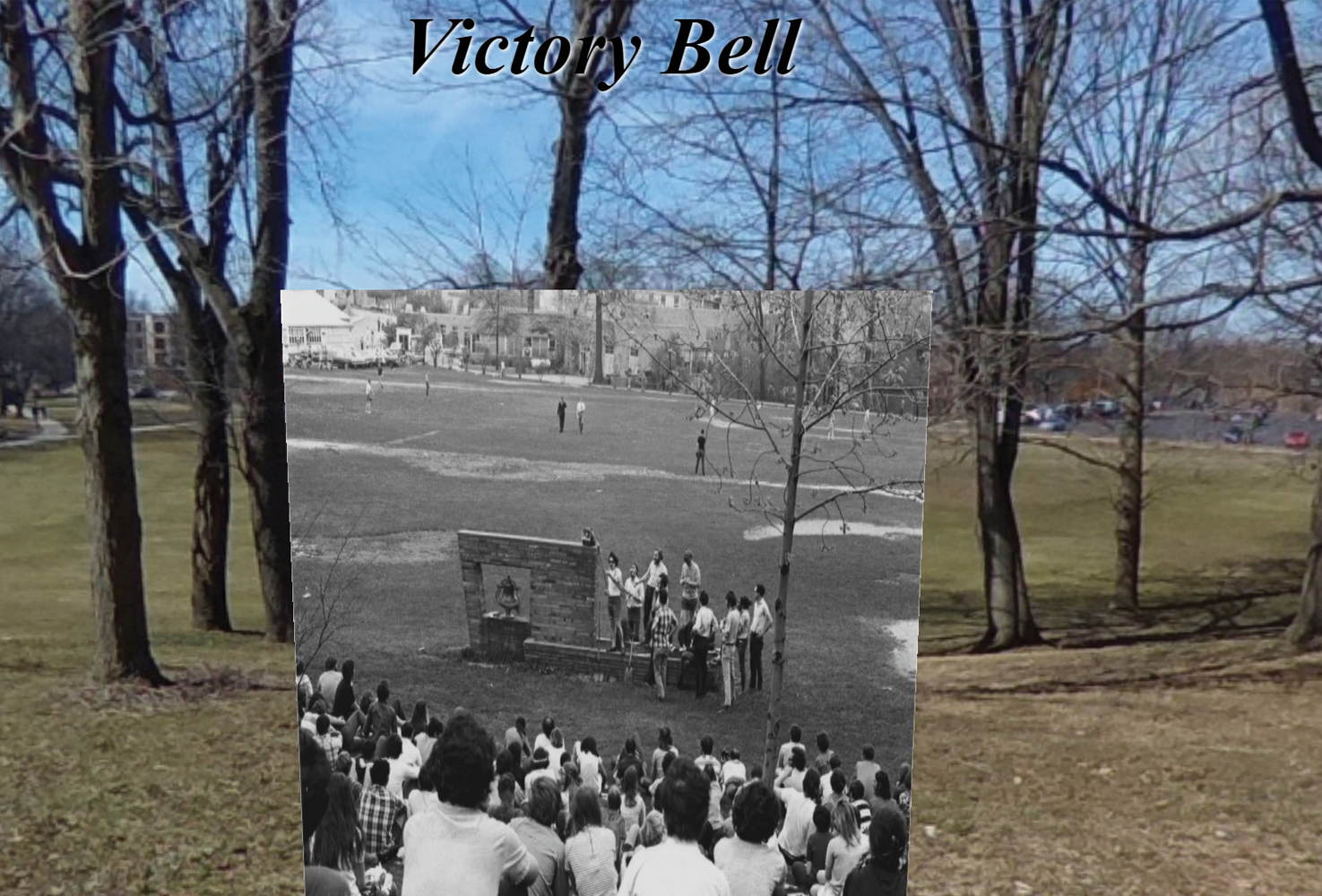It may be hard to imagine what the Kent campus looked like 53 years ago. With the May 4 Augmented Reality Experience, students and community members can be transported into the past to experience historical flashbacks and engage with Kent State University’s previous generations.

The May 4 Augmented Reality Experience provides students with the ability to visualize and form a connection with the events of May 4, 1970.
The project team for this interdisciplinary project is led by current project director, Richard E. Ferdig, Ph.D., Summit Professor of Learning Technologies in the College of Education, Health and Human Services and professor of education technology; co-investigator Enrico Gandolfi, Ph.D., assistant professor; co-investigator Annette Kratcoski, Ph.D., director of the Research Center for Educational Technology; co-investigator Robert Clements, Ph.D., assistant professor of biological sciences; co-investigator Cheng Chang Lu, Ph.D., professor of computer science and a team of other dedicated members.

In 2018, the team received a $75,000 prototyping grant from the National Endowment for the Humanities (NEH) and later received a 2020 NEH Production grant for $175,000.
Pokémon Go had come out two years before the project began and had been part of an inspiration for Gandolfi. He started thinking about other opportunities using augmented reality, an interactive experience that combines the real world with digital content.
“It was this big question about how we could do more using innovations in order to promote and to help the younger generation, because the problem is that a lot of things change in 50 years,” Gandolfi said.
When building this mobile and desktop friendly platform, the team had to locate all of their destinations that would be included in the tour. Afterwards, they had to find photos from the May 4 events to input as an overlay.
“Essentially, you’d hold up your phone and get a 1970s overlay on top of what exists today,” Ferdig said. “After finding images and putting together a story, hopefully you have an augmented reality experience where somebody can actually follow a tour around campus and hear and see a story about something that happened 50 plus years ago.”

Kratcoski discussed the importance of assembling a team to tackle the challenge of engaging with current and future generations while also keeping up with historically accurate information.
“All the rich history, but the lessons learned from people and their perspectives needed to be included, so it was important to have the right people assembled on our team,” Kratcoski said.
Due to COVID-19, what was originally intended to be an augmented reality experience in 2020, turned into a virtual reality one, where anyone can access the tour anywhere in the world and follow along.
Ferdig spoke of the importance this virtual reality will have by providing an opportunity for people to commemorate May 4 and explore the campus, even if they aren’t physically there. It allows people to learn the history, culture and context around what happened.
“People could still visit but maybe the disadvantage is you still had to be on campus to figure it out. Over time, buildings go away, people pass away and stories pass away,” Ferdig said. “The beauty of this is being able to go back in time and being able to have somebody from New Zealand be there on May 4.”
Parallels can be drawn to past and present students. Some experiences the generations of today are experiencing, were experienced half a century ago.
“The context behind what happened on May 4, 1970 - freedom of speech, different viewpoints, politics, opinions - guess what? That's what's happening today,” Ferdig said. “And so, those stories that get told, we need people to hear that what happened 50 years ago is happening today. And here's what we can learn from what happened.”
Please visit the May 4 Augmented Reality Experience to take the tour.
The 53rd Commemoration is set for May 3 and May 4 with a schedule of events that includes the annual Jerry Lewis Lecture Series, a special screening of the film “Young Plato” and panel discussion with filmmakers, Candlelight Walk and Vigil and the noon gathering on the commons.

